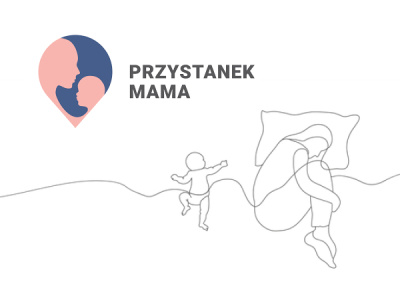
The ‘Next Stop: Mum’ health programme, coordinated (on behalf of the University of Gdańsk) by dr Magdalena Chrzan-Dętkoś from the Institute of Psychology at the Faculty of Social Sciences of the University of Gdańsk, has been selected as one of the 11 best mental health prevention programmes, according to a report by the Organisation for Economic Co-operation and Development (OECD). It is the only programme from Poland included in the above-mentioned list.
Among the initiatives recognised were the Belgian reform of psychiatric care, the Norwegian ‘Prompt Mental Health Care’ programme, the Dutch @Ease youth support centres, the German iFightDepression® platform and the Polish ‘Next Stop: Mum’ programme.
‘Next Stop: Mum’ is a mental health prevention programme aimed at women in their last trimester of pregnancy and in the first year after giving birth, implemented in Poland between 2019 and 2023. The aim of the programme was to train medical staff (e.g. midwives and nurses) in screening for postpartum depression (PPD), informing women about PPD, conducting PPD risk screening and referring women at increased risk for psychological consultations.
In Gdańsk, the programme was implemented by Copernicus Podmiot Leczniczy (project leader) in cooperation with the Creative Women Foundation Lactation Science Centre in Warsaw and the Institute of Psychology at the University of Gdańsk (project partner). The project manager on behalf of the University of Gdańsk was dr Magdalena Chrzan-Dętkoś. Natalia Murawska (PhD student), Maria Bakiera, and Agnieszka Piękos-Dubiel were also involved in the implementation of ‘Next Stop: Mum’.
During the project, a total of 74,234 screening tests were carried out throughout Poland. The programme was used by refugees, among others, and to a limited extent also by men (online screening for symptoms of depression).
‘We managed to do even more than we intended,’ says dr Magdalena Chrzan-Dętkoś. ‘An important element of ‘Next Stop: Mum’ in our region was training for nurses and midwives, as well as their supervision. Mothers, who were the primary target of the programme, had the opportunity to take advantage of three psychological consultations. It turned out that these three consultations alone were associated with a reduced risk of postnatal depression. In approximately 50% of those covered by the intervention, the risk of postnatal depression changed from high to low (based on the Edinburgh Postnatal Depression Scale).’
According to the OECD's assessment and analysis, the programme has the potential to reduce the consequences of postnatal depression, which are often overlooked or left untreated. It focuses on screening for PPD and (if necessary) referral for psychological consultation, which reduces the risk of depression in the postnatal period. It also contributes to reducing the stigma of depression in the perinatal period.
The OECD report states:
‘It is estimated that the implementation of a screening programme such as ‘Next Stop: Mum’ would result in savings in 28% of the countries analysed, and would be a cost-effective solution in the remaining countries. The programme meets many criteria for good practice, although further improvements are possible, particularly in terms of providing mental health care for vulnerable groups such as people living in disadvantaged areas, ethnic minorities (including migrants and refugees), and underage women.’
The report shows that the programme can be easily implemented in 17 of the 39 EU and OECD countries, and in another 16 countries its implementation is moderately possible. In total, almost 44% of countries are in the highest transferability cluster.
Dr Magdalena Chrzan-Dętkoś is delighted that the ‘Next Stop: Mum’ programme has been recognised by the OECD. At the same time, she emphasises the value of the tools and know-how developed in the programme, which could continue to be used in mental health services.
‘”Next Stop: Mum” was the implementation of a psychological prevention project into the “daily life” of healthcare. We collaborated with seven maternity wards and 40 primary healthcare centres, and daily phone calls and resolving urgent matters became “bread and butter”. This enormous amount of work has resulted in knowledge and experience that we, together with Natalia Murawska and the employees of Copernicus, are very happy to share. We have a ready-made action plan, a training programme and an evaluation of these training courses. What we have created is recommended for implementation in many countries and actually contributes to the prevention of postnatal depression. I would like this knowledge and these tools to continue to be used,’ emphasises the project manager.
Read also:
Mental Health Promotion and Prevention. Best Practices in Public Health - OECD Report
Mental Health Promotion and Prevention | OECD
